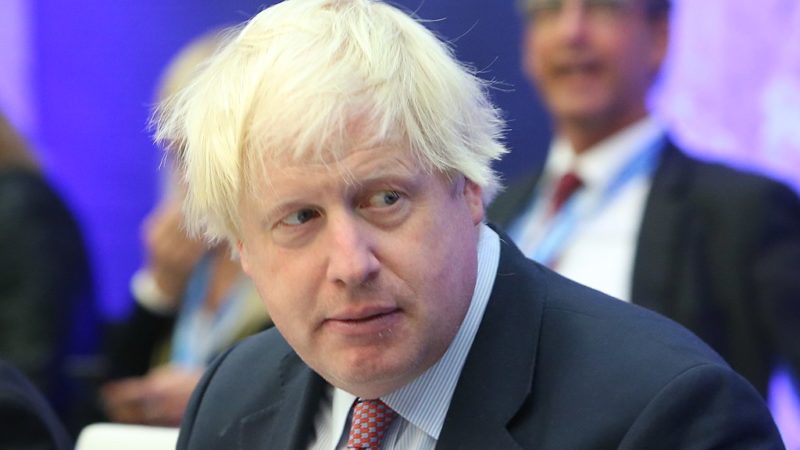'76% of people ‘didn’t know’ what politicians meant when they talked about a ‘culture war'.

Maheen Behrana is a writer and Editor-in-Chief at at BBench.co.uk
Towards the end of last year, the Common Sense Group of Conservative MPs and peers blundered in to yet another battle in the so-called ‘culture wars’, lambasting the children’s charity Barnardo’s for a blogpost on white privilege. This grouping of parliamentarians, which claims to work against the ‘distorted priorities of left-wing activists’, complained to the charities regulator about the relatively anodyne blog, a clear and simple guide for helping children to understand white privilege and its implications.
That complaint has now been rebutted. The Charity Commission ruled that the blogpost did not breach charity laws in any way, and was perfectly in line with Barnardo’s mission. The Tory MPs, who arguably should have had more pressing issues on their mind last year as Covid cases surged, have been firmly put back in their box.
This ruling from the Charity Commission appears to be the latest in a line of recent victories for (genuine) common sense over the culture wars. Just last week Nigel Farage criticised the RNLI for its lifesaving work rescuing refugees crossing the Channel. He described the charity as a ‘taxi service for migrants’, perhaps hoping to generate further anti-refugee sentiment.
It was a calculated move from someone whose main aim appears to be to stoke division, but it didn’t really pay off. Instead, the RNLI saw its donations surge by 3000% in a single day, as people rallied around the charity and its work.
Similarly, last month, the government found that its attempts to bring the culture wars to Britain’s most popular sport rather backfired. After fans booed the England team for taking the knee prior to their Euros matches, neither Boris Johnson nor Priti Patel stepped up to condemn them, with Priti Patel appearing supportive of fans’ negativity. When England was then defeated in the Euros finals, and the Black players on the team were subjected to racist abuse, Patel and Johnson both went on to condemn the overt racism.
But their condemnation was met with cynicism, both from football players and from Tory MPs like Johnny Mercer, who emphasised that taking the knee was simply about empathy, and suggested that Patel and Johnson had caused problems by turning it into such a divisive issue.
From recent events, it may seem like the days of the culture wars are numbered. But what the culture wars actually are is rather unclear.
Tory groupings like the Common Sense Group claim to be directly opposed to the ‘woke agenda’. They argue that the ‘business of politics is values’ and appear to be directly positioning themselves as fighters on one side of a culture war.
And yet, in a Times Radio poll conducted back in February, 76% of people ‘didn’t know’ what politicians meant when they talked about a ‘culture war’. Speaking to The Guardian, Matthew D’Ancona suggested that the ‘culture war’ was actually a strategy.
This is now a well-worn argument. The idea that these culture wars are just political confections attempting to rile voters up and sow division is accepted by many across the political spectrum. The insistence of politicians on weighing in heavy-handedly on seemingly minor issues which they then magnify as a threat to the nation’s values betrays this.
Why else would Gavin Williamson so pointedly condemn the decision of students at Magdalene College Oxford to remove a portrait of the Queen? Simply by commenting so strongly, Williamson amplified a relatively minor piece of news, literally hyperbolising it into a jingoistic socio-political sign.
But it seems that these confections may have reached their limit. While the presence of a portrait of the Queen in a small student building is of no consequence either way, the work the RNLI does has a vital function – without it, there would be great loss of life.
Similarly, while taking the knee has been controversial and disliked by many of those who right-wing politicians target, the racism directed at national sporting heroes certainly struck a chord with many who were appalled at the treatment of England’s star players – and appalled at those who chose to abuse them.
This doesn’t mean that all of Britain’s divisions have miraculously healed. But it does seem that when politicians clearly overstep the point of decency, they are met with a rather cool reception.
And this is where hope lies – because there isn’t much more right-wing spin-doctors can do with the culture wars without advocating for actions that are directly harmful to the lives of others. It seems the British public are beginning to realise this. Long may it continue.
To reach hundreds of thousands of new readers we need to grow our donor base substantially.
That's why in 2024, we are seeking to generate 150 additional regular donors to support Left Foot Forward's work.
We still need another 117 people to donate to hit the target. You can help. Donate today.



